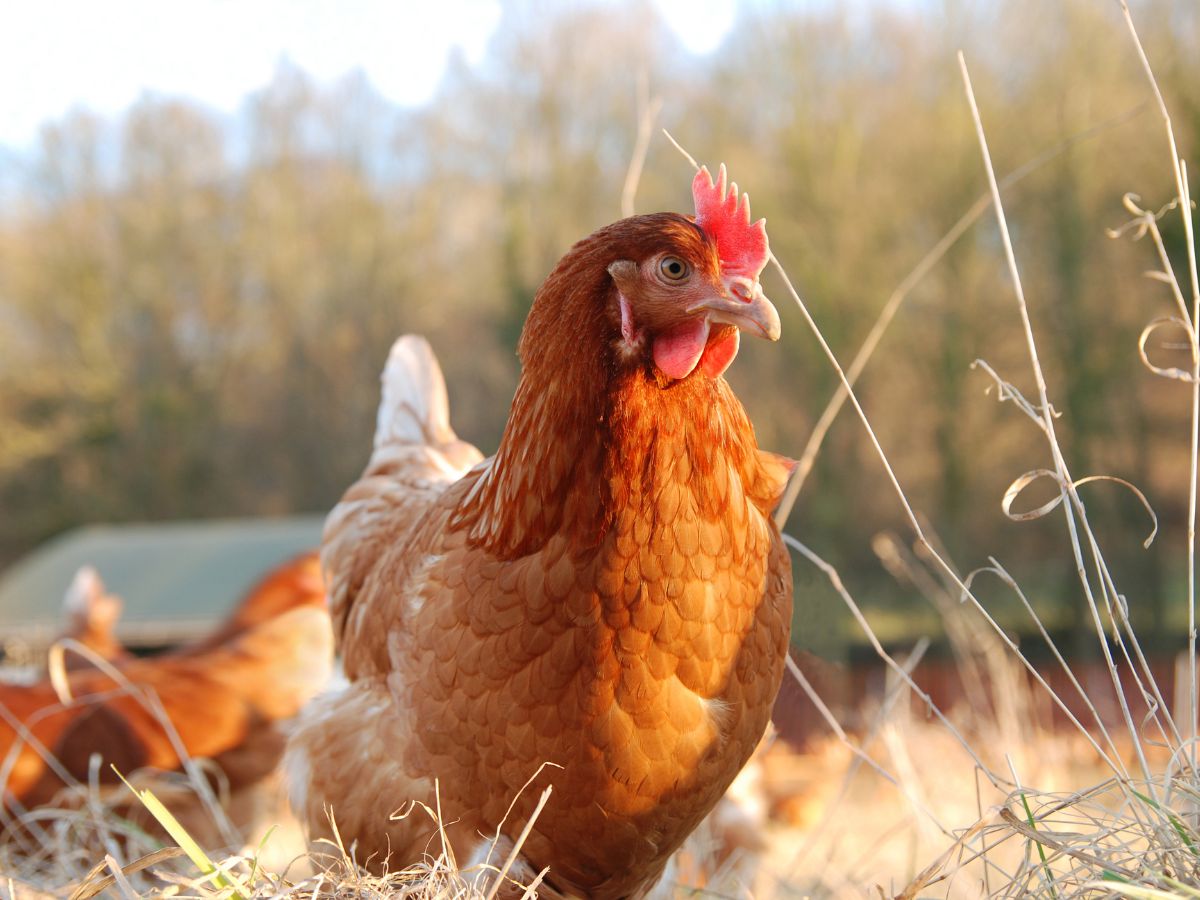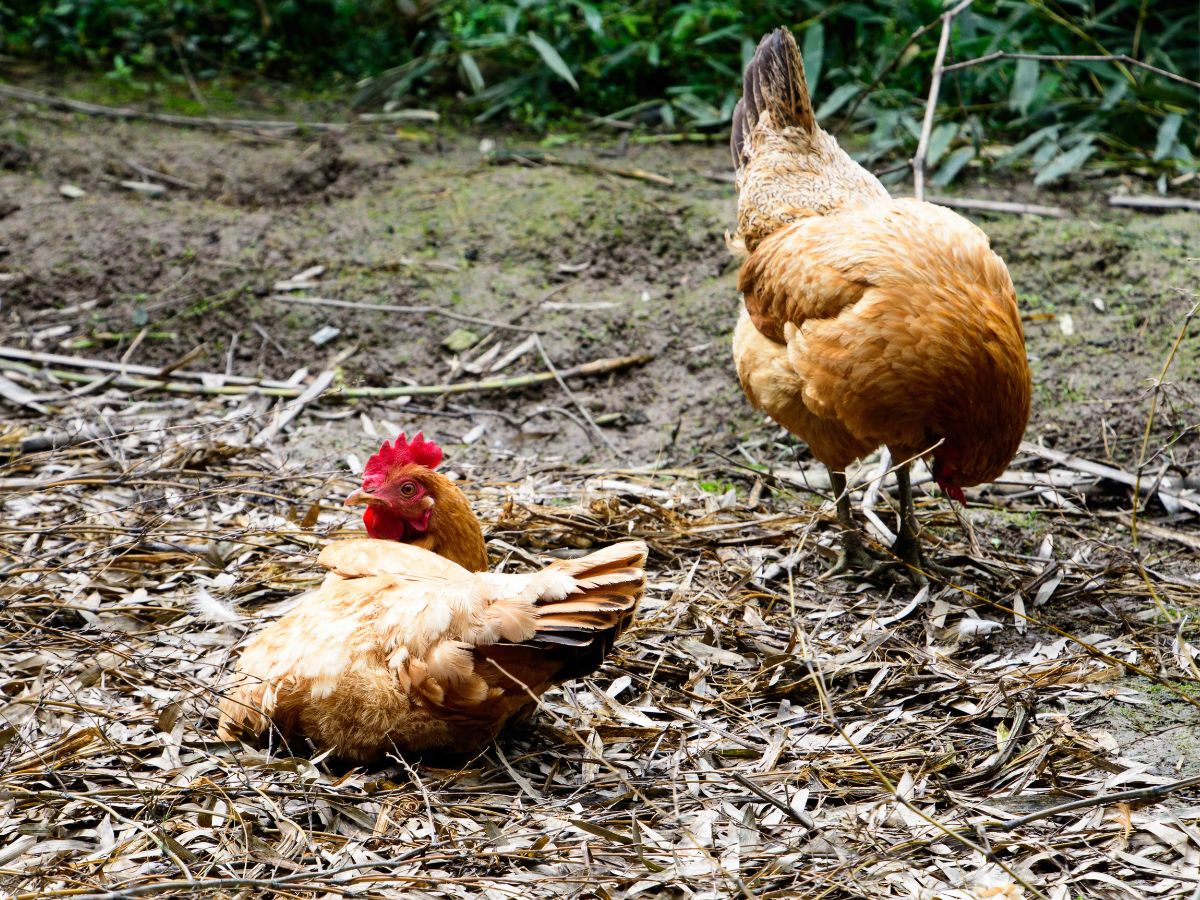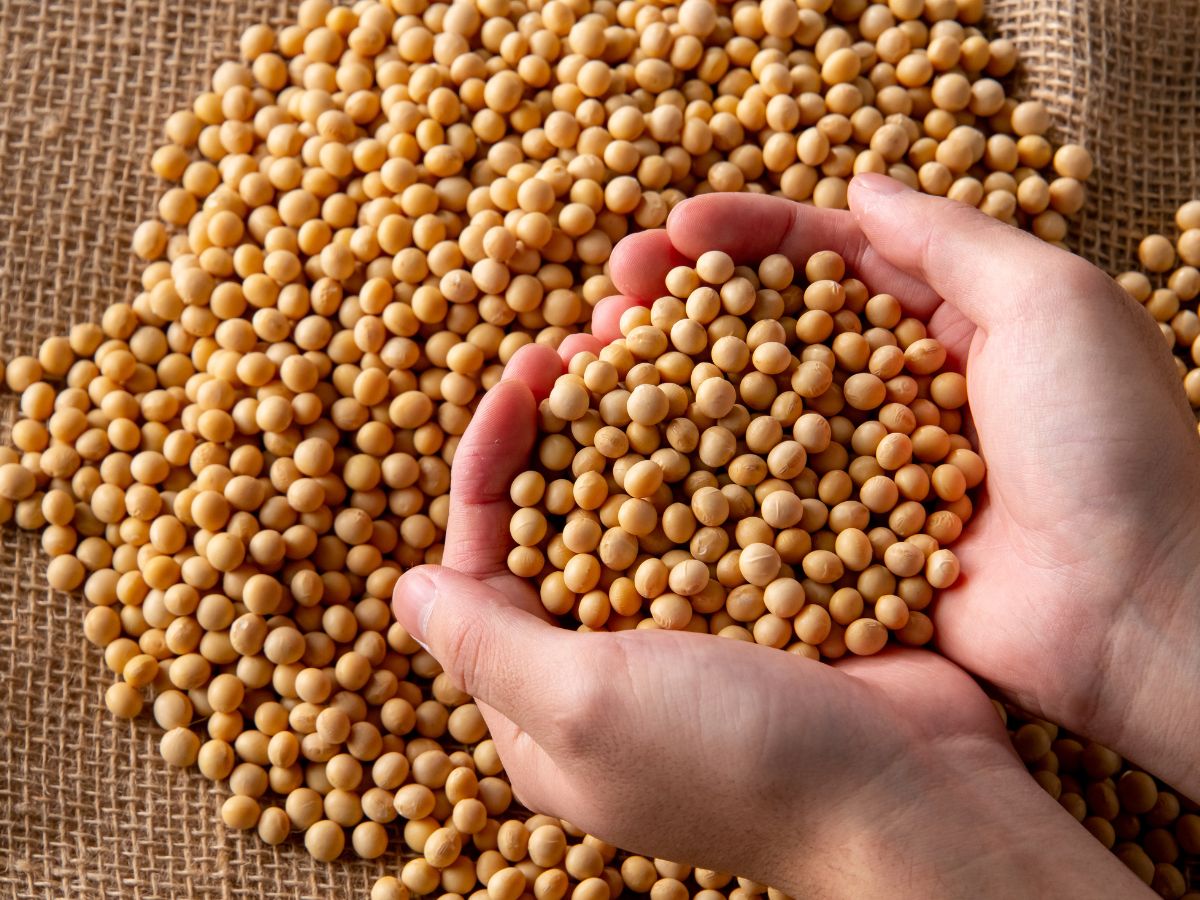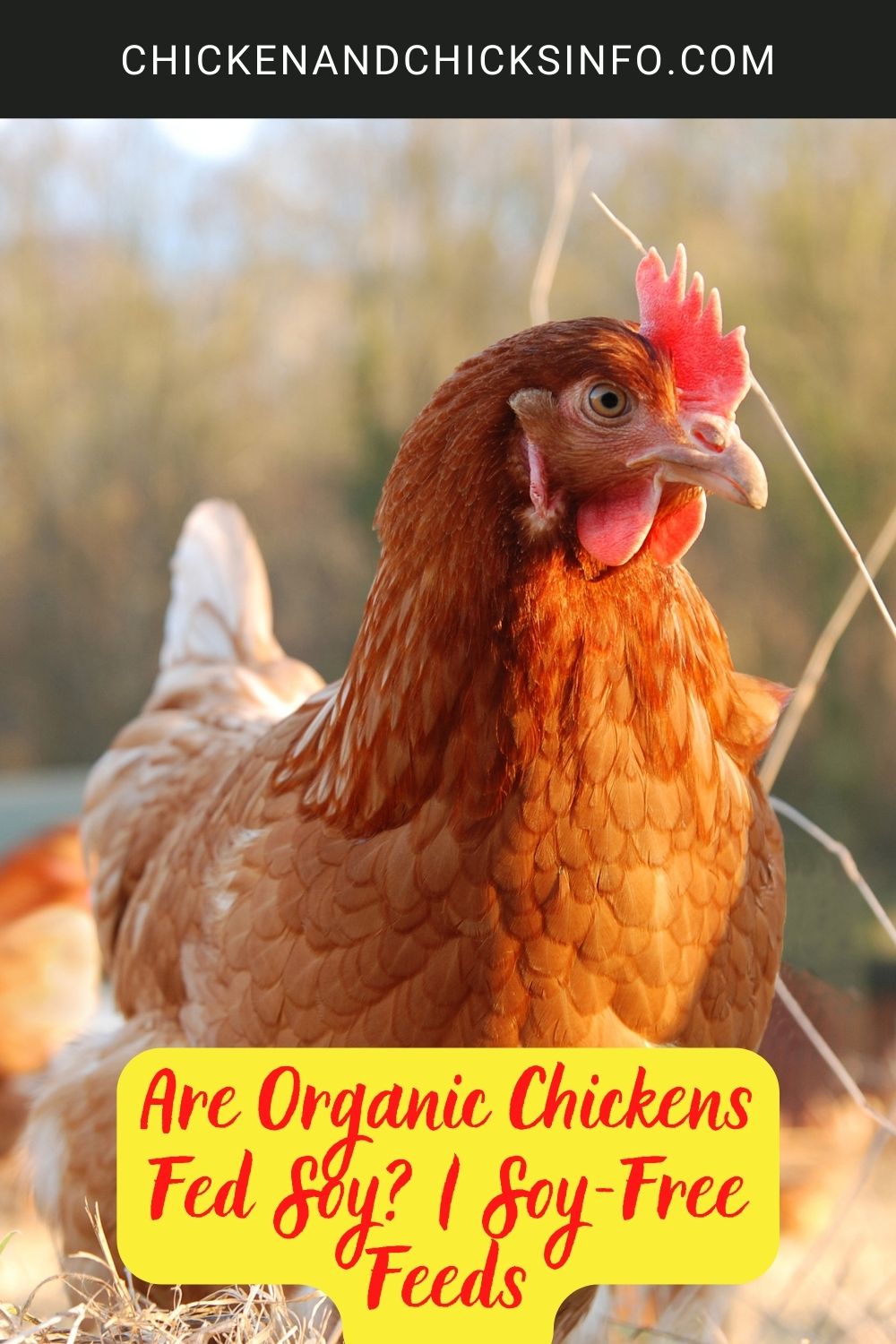
There’s been a lot of conflicting opinions on whether or not soy is good for chickens over the years.
Whichever side you’re on or whatever your reasons, you deserve to know what’s in the feeds you’re giving your chickens, and what organic chickens are being fed.
Are organic chickens fed soy? This is hard to answer as soy can be fed as part of an organic diet. You would have to check with whoever fed the chickens, so never assume it’s a “no”.
Jump to:
What Do Organic Chickens Eat?
If chickens are on an organic diet, it means they only eat natural foods that were grown without pesticides or any other unnatural chemicals.
This includes allowing them to roam free-range to graze on grass and find bugs, worms, and other grubs.
It’s not easy to feed chickens an organic diet just from foods you’re growing in your yard. Unless that is, you have a pretty awesome yard and grow a lot of your own fruits, vegetables, grains etc.
Related content - Can chickens eat quinoa?
Most backyard chicken owners that feed their flock an organic diet do so by buying organic chicken feed to supplement their diet.
These feeds are made from organic ingredients, as you’d expect. It doesn’t mean they are free from all the ingredients you would feed your chickens given the choice though.
So, it’s always important to read the ingredients label to know what you’re feeding your chicks.
The Benefits of Organic Diets for Chickens

Ever heard the saying, “You are what you eat?”
I can’t say I live my life by this saying, but it’s something I’m mindful of for sure.
So, eating chicken or eggs that have been raised on organic food gives me a much better peace of mind.
It’s common for poultry breeders, and this applies to most livestock, to feed their animal’s genetically modified organisms (GMOs), filler foods, scraps, and honestly, some foods that you just wouldn’t feed your own backyard pets.
Anything to help their meat birds grow quicker or lay more eggs is good for business. This often comes as a detriment to the bird’s health, and the quality and taste to the end-user.
On the other hand, organically fed chickens do not eat any foods treated with pesticides, hormones, synthetic fertilizers, etc.
According to Healthline, some of the known benefits of raising chickens on organic diets for meat include:
Reduced risk of bacteria - Non-organic chickens are given antibiotics to help combat the risk of bacteria due to their living conditions and diet. This creates drug-resistant bacterias though.
Better nutritional value - Studies have shown that chicken raised on an organic diet are higher omega-3 fatty acids and some other good nutrition. That speaks volumes.
Tastier eggs - This can be subjective. But for me, there’s a very obvious difference between organic and caged eggs. The yolk is darker, the texture smoother, and they have a “fuller” flavor.
Animal welfare - I think it’s time more people spared a thought for the welfare of chickens and other animals being mass-produced. A happier chicken is a healthier chicken. That makes for a better all-around experience.
Why Are Chickens Fed Soy?
The reason why almost all commercial chicken feeds are loaded with soy will not come as a surprise to most people.
It’s the least expensive way to feed chickens some of the nutritional content they need.
But it comes with a load of downsides.
Is Soy Bad For Chickens?
I’ve read some long lists of reasons why soy is potentially bad for chickens, and there are a lot of people who are adamantly against it.
Some of the reasons include:
- Evidence that it causes iron and zinc deficiencies, which is off-set with iron supplements.
- Almost all soy is genetically modified. We still don’t know enough about the harm GMOs can cause. Some health risks have come to light in recent years, but it’s more about avoiding the long-term issues that aren’t as clearly known in my opinion.
- Soy helps chickens put on weight, which is good for market value. But it does this because it contains isoflavones, which depresses thyroid function.
- A lot of people have sensitivities to soy, which can be triggered by eating chickens and eggs raised on soy-based feed.
That’s more than enough reasons for me to raise an eyebrow. Even though I have free-range chickens and I’m not feeding them for meat, I’ve taken steps to remove soy from my flock’s diet.
Is There Soy in Organic Chicken Feed?

Most commercial feeds, organic or not, contain soy so it’s important to check the ingredients yourself.
If you’re looking for an organic feed without soy, I have found one for you. Here are a couple of popular organic chicken feed, one with soy (Kalmbach), and one free from soy (Joenks)
Kalmbach Feeds Organic Layer Feed - w/ Soybean Meal

If you’re looking for an organic layer feed but don’t mind if it contains soy, I recommend checking out this feed from Kalmbach.
It contains 17% protein, which is essential for laying hens. Uses USDA organic ingredients, and contains a proprietary blend of prebiotics.
They say it’ll help your hens produce eggs high in vitamin D-3 and omega-3 fatty acids. Certainly worth putting it to the taste test!
You can check the latest price and reviews on Amazon by clicking here.
Joenks Farm Naturals Organic Chicken Layer Feed - NO SOY

This feed from Joenks is an excellent organic feed. It contains no GMOs, and no soy while providing 16% protein, the recommended amount for laying hens.
The key ingredients are field peas, kelp, alfalfa, canola, and flaxseed. It’s 100% USDA certified organic, and judging by the reviews on Amazon, chickens love it!
If you’re looking for a soy-free organic super feed, I recommend taking a look.
You can check the latest price and reviews on Amazon by clicking here.
In Summary - Are Organic Chickens Fed Soy?
Some organic chickens will be raised on soy, yes.
If you want meat or eggs free from a soy diet, you’ll need to speak with the farmer that raised the chickens or check the labels for information.
Soy is one of the most common ingredients found in chicken feeds, organic or not.
If you want chicken or eggs that are soy-free, your best bet is to find pasture-raised birds that get most of their food by grazing and roaming free-range.





